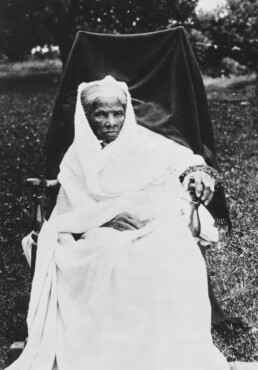The Nashville shooter bought guns *legally*
 March 28, 2023 Happy Weed Appreciation Day, Meteor readers. (No, not that kind of weed—that’s another month away.) It’s not a light one today, as we mourn the loss of six more lives to the epidemic of gun violence—this time, in Nashville. But there are still good things in the world; for instance, our Women’s History spotlight celebrates Nicole Aunapu Mann, the first Native American woman to make it to space. But first: the news. Taking a moment of silence, Bailey Wayne Hundl  WHAT'S GOING ON ITEMS LEFT IN REMEMBRANCE AT THE ENTRANCE OF THE COVENANT SCHOOL, WHERE THE SHOOTING TOOK PLACE (PHOTO BY SETH HERALD/GETTY IMAGES) Tragedy in Nashville: Three children and three adults were killed in a shooting at a Nashville private school on Monday. The students killed were all nine years old; the adult victims included a custodian, a substitute teacher, and the school’s principal. The shooter, who has been identified as a former student of the school, was killed on the scene while firing on police. This marks the deadliest school shooting in America since the Uvalde attacks last May. Ashbey Beasley, a mother who survived the Highland Park shooting last summer, was visiting her sister in Nashville at the time of the shooting. She crashed a live Fox News broadcast Monday and emphasized the need for comprehensive gun reform, asking, “Aren’t you guys tired of covering this?” (If you haven’t watched, do.) And she’s right; after all, the shooter legally purchased a total of seven firearms, three of which were used during the shooting—meaning that the real subject to cover is our nation’s devastatingly lax gun laws. Unfortunately, all Gov. Bill Lee (who strongly opposes gun control) has to offer the victims is the usual: thoughts and prayers. And the congressman who represents the district where the shooting took place had his whole family pose with assault rifles for last year’s Christmas card. Typically when covering a shooting, it’s best not to give the shooter attention or glory. But a right-wing narrative has emerged that deserves addressing around the fact that the shooter may have identified as trans. A police spokesperson told the Washington Post that the killer was “a biological woman who, on a social media profile, used male pronouns.” Police said the shooter left a “manifesto” but have not given any indication whether it referenced their gender identity; that hasn’t stopped people from speculating. And it hasn’t stopped transphobes from spreading bullshit about how “the modern trans movement is radicalizing activists into terrorists.” There just isn’t enough information available at this time to know whether or not the shooter was trans, much less to justify a headline like “Transgender Killer Targets Christian School.” (We don’t label the usual killers as cis men, even though they almost always are.) What we do know is we’ve had over 100 mass shootings in America this year—and we’re not even a fourth of the way through. Let’s not let the pro-gun folks use “trans panic” to keep our attention off where it belongs: the reforms that will save lives now. If you or someone you know has been impacted by gun violence and you’re looking for help, you can start here. AND:
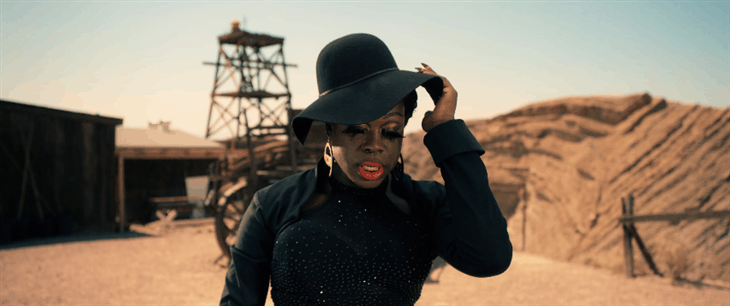
 A 🍕 OF HISTORYReach for the StarsIt's Women's History Month. And every week, a Meteor collective member recounts a piece of women's history that resonates with them. Today, Arvina Martin, executive director of Emerge Wisconsin, tells the story of Nicole Aunapu Mann, the first Native American woman in space.  PHOTO BY NICOLE MANN HERSELF It can seem strange to think that there are still so many “firsts” left out there, but Nicole Aunapu Mann, a former Marine test pilot, achieved a pretty big one at the end of 2022. With a trip to space which lasted 157 days and included two spacewalks—she became the First Native American woman astronaut. Mann is an enrolled member of the Round Valley Indian Tribes, which is one federally recognized tribe with a reservation in Mendocino county, in northern California. The community is actually a confederation of six small tribes which were forced by settlers to live together in the mid-18th century, despite being distinctly different communities who spoke different languages. Mann is of the Wailaki people, one of the six, and grew up in nearby Sonoma County She told NPR last year that she hoped to inspire other young people like her: “These young women, maybe Natives, maybe people from different backgrounds, [may] realize that they have these opportunities and potentially these barriers that used to be there are starting to be broken down,” she said. Educated at the U.S. Naval Academy and Stanford, she pursued aviation, and was twice deployed aboard the USS Enterprise in support of Operations Iraqi Freedom and Enduring Freedom. By the time she was selected as an astronaut candidate in 2013—part of NASA’s 21st astronaut class—she had completed more than 2,500 flight hours in 25 types of aircraft; it took her two years to complete her training and another seven to be assigned to a space mission. When the SpaceX Dragon Crew launched on Oct. 5, 2022, Mann was at the helm as commander. In doing so,, she made history twice: Hers was the first SpaceX mission with a female commander as well as the first spaceflight with an Indigenous woman. She spent 157 days in space before returning to Earth on March 11. As both a woman and a Native American, she came home with so many firsts under her belt. But as a member of the Artemis team, she may still have another first coming: She may later become the first woman to walk on the moon. Arvina Martin is the Executive Director of Emerge Wisconsin. A member of the Ho-Chunk Nation, and Stockbridge-Munsee, she lives with her daughter and mother in Madison, Wisconsin, where she was the first Native American person ever elected to that city’s Common Council.  FOLLOW THE METEOR Thank you for reading The Meteor! Got this from a friend?
|
![]()
"Don't Say Gay" arrives abroad
 March 23, 2023 Ramadan Mubarak, Meteor readers, I hope everyone observing is able to find reflection, community, and anything else you seek. I’ve been re-reading these pieces on Ramadan from The Meteor’s Shannon Melero and Ayesha Johnson. If you missed them the first time, I highly recommend them now. In today’s newsletter, we look at Uganda’s latest draconian law criminalizing LGBTQ+ identity itself and how these cruel measures got their start. (Spoiler alert: It’s colonialism. It’s always colonialism.) Oh, and French scientists have announced that a small, vicious being indigenous to Corsica— you know, like Napoleon—is actually a unique (and adorable) species of cat-fox. Nous jurons allégeance! But first: the news. Booking a flight to Corsica, Bailey Wayne Hundl  WHAT'S GOING ONNo, really, do NOT say "gay": On Tuesday, with an overwhelming 387-2 majority, the Ugandan parliament passed a law making it illegal to identify as LGBTQ+. Uganda has a long history of oppressive measures like this; same-sex intercourse has been illegal since British colonial rule. But this new legislation bans anyone from even identifying as LGBTQ+ publicly, charging that claiming the identity is “promoting” it. The law also authorizes the death penalty for “aggravated homosexuality,” a broad term covering many offenses—including having sex while HIV-positive. Speaker Anita Among congratulated the chamber, saying, “Whatever we are doing, we are doing it for the people of Uganda.” David Bahati, another lawmaker, claimed during debate, “Our creator God is happy [about] what is happening.” But according to Ugandan LGBTQ+ advocate Frank Mugisha, “The last time [anti-gay] legislation was around, there were cases of suicide…[and] this law is worse than the one that was here before.” This is the first law to explicitly ban identifying as LGBTQ+, but over 30 African countries have banned same-sex relations. Interestingly, though, if you go back a few centuries, many African countries (including Uganda) had a long history of embracing queerness—before British colonizers criminalized it and snuffed it out. And now, journalists point out, right-wing American groups have been picking up where the British left off. The Alliance Defending Freedom (which is also behind the lawsuit seeking to ban the abortion pill in the States…and those disingenuous “progressive Jesus” Super Bowl ads) has funneled over $100k into sponsoring anti-gay laws internationally; Focus on the Family has contributed over a million. So if anyone tries to paint the genocide of queer people as something happening “over there,” just remember: It starts here. You can support queer Ugandans trying to live their lives by donating here. AND:
 COME ON, LOOK AT THAT FACE! (PHOTO BY MARTIN BOONE)  A 🍕 OF HISTORYCan We Pass the Equal Rights Amendment Already?It's Women's History Month. And every week, a Meteor collective member recounts a piece of women's history that resonates with them. Today, we remember the (still yet-to-be-passed) Equal Rights Amendment.  (PHOTO BY ANN E. ZELLE/GETTY IMAGES) Yesterday marked the 51st anniversary of Congress passing the Equal Rights Amendment (ERA), which stated—concisely and, to our ear, perfectly—that “equality of rights under the law shall not be denied or abridged by the Unites States or by any state on account of sex.” But after that remarkable vote, conservative activists rallied against the amendment and it failed to be ratified by a supermajority of the states in time for a Congressionally-imposed deadline of 1982. (The revocation of that deadline, which would allow for its ratification, is still pending in Congress.) Here, a young girl attends the 1978 ERA March in Washington, D.C., wearing white to honor the suffragettes who marched in the same city for the same cause 65 years earlier. Her sign—“not when I’m old”—probably sounded like a joke at the time, but she must be in her late 50s now. Let’s honor her wishes soon.  FOLLOW THE METEOR Thank you for reading The Meteor! Got this from a friend?
|
![]()
Why silencing women may come back to bite Trump
|
 March 21, 2023 Happy Nowruz, Meteor readers, I’m sure you’ve all been waiting all day to hear: Is Trump getting arrested on Tuesday? Short answer: No. But he could be indicted any day now. I’m gonna give myself arthritis with how tightly I’m crossing my fingers. In today’s newsletter, we’ve got Iranian activism, legislative ignorance, and the poetic justice of Trump potentially facing consequences from an attempt to silence women. In today’s slice of Women’s History, we’ve got yours truly telling you the tale of the late trans icon Christine Jorgensen, and what her story teaches us about the dangerous pressures to perform femininity. And finally: Another icon! The Meteor has just announced an April 4 event with Dr. Jane Goodall at the Brooklyn Museum. We can’t think of a better way to celebrate our planet. Get your tickets here while they last. But first: the news. Crossing my toes, Bailey Wayne Hundl  WHAT'S GOING ONGrab him by the...handcuffs?: Former reality TV host and Twitter personality Donald Trump announced via social media Saturday that he expected to be arrested on Tuesday (he was not). The crime for which he could be indicted by a grand jury this week is the alleged falsification of business records to cover up hush money payments made starting in 2015 to at least two women—adult film actress Stormy Daniels and former Playboy model Karen McDougal. If he is, in fact, indicted by a grand jury, people close to him have said he wouldn’t even be expected to make a court appearance in the case until some time next week. Falsifying business records, the charge Trump potentially faces, is a misdemeanor under New York state law, unless they were falsified with the “intent to commit another crime or to aid or conceal the commission thereof,” making them a Class E felony. Trump’s former attorney, Michael Cohen, previously pleaded guilty to federal campaign finance violation charges for arranging the payments. It comes as a bit of a surprise that of all the things the man’s allegedly done—committing fraud, inciting violence, evading taxes, obstructing justice, assaulting, sparking a damn insurrection—this is the one that might result in actual criminal charges. But as satisfying as it’d be to see Trump held to task for all the horrible things he’s done, it’s almost poetic justice that he might actually face a jury of his peers for an attempt to bury a woman’s story about her own life. The same man we all watched deny a woman her opportunity to speak might now be punished for doing exactly that. And who can deny the sweet satisfaction of Trump being brought to (some modicum of) justice by a woman he called Horseface? AND:
  A 🍕 OF HISTORYThe Pressures of Performing FemininityIt's Women's History Month. And every week, a Meteor collective member recounts a piece of women's history that resonates with them. Today, Bailey Wayne Hundl examines the legacy of Christine Jorgensen, the first openly publicized trans woman in America.  THE "BLONDE BEAUTY" HERSELF (PHOTO BY BETTMANN/GETTY IMAGES) On the front page of the December 1, 1952 edition of the New York Daily News, the headline read: “Ex-GI Becomes Blonde Beauty: Operations Transform Bronx Youth.” The story on page three outed Christine Jorgensen, a trans woman who had traveled to Europe two years before and received gender-affirming hormones and surgery. Surprisingly, being outed did not ruin her life. Tons of news outlets picked her story up, emphasizing the same qualities the first story did: her (masculine) military background and transformation into perfectly performed femininity. She became, as trans people so frequently do, a public fascination. Jorgensen took the newfound attention and used it both to bring attention to LGBTQ+ people and to jump start a career in entertainment. She performed in nightclubs, spoke at colleges, wrote an autobiography, and even had a film written about her (in which she was played by a cisgender man). And though she was able to survive and thrive being publicly trans, it’s not lost on me that she was only able to do so because people were shocked by how well she “passed.” If she hadn’t been such a “blonde beauty,” it’s very unclear what options would have been available to her to pay the bills— especially after her public profile scuttled first her fiancé’s government career and their attempt to get married. Among other things, Jorgensen’s life and the media narrative around her serve as reminders that the societal standards for “appropriate femininity” are bullshit and that adherence to those standards can be, for some, a matter of survival.  SPONSORED BY:  We ❤️ NYC is a campaign to showcase the city’s strengths and mobilize New Yorkers. It focuses on what New Yorkers can do to support the post-pandemic resurgence of the city and its neighborhoods. It is also a celebration of New Yorkers who are already making a difference — the “doers” — and features opportunities for civic engagement. The We ❤️ NYC mark is a trademarked adaptation of Milton Glaser’s design for the “I ❤️ NY” campaign that launched in 1977. You can learn more at: www.welovenyc.nyc.
 FOLLOW THE METEOR Thank you for reading The Meteor! Got this from a friend?
|
![]()
Harriet Tubman's *other* legacy
|
What’s up, Meteor readers? Yesterday, French Bulldogs officially passed Labrador Retrievers as America’s favorite dog (according to the American Kennel Club), ending the labs’ 31-year streak. And personally…I don’t get it! Bulldogs just don’t do it for me. And when you look up “good boy” in the dictionary, it shows you a picture of a golden lab. America, you’re just going to have to reconsider.  In weightier news: Today we’re updating you on the Texas lawsuit that has the potential to deny access to the abortion pill nationwide—even in states with no abortion ban. Plus, we celebrate the Nebraska state senator using “Madagascar” recaps to protect access to gender-affirming care for trans youth. (It’ll make sense when you read it.) But first: the news. Scrolling through puppy gifs, Bailey Wayne Hundl  WHAT'S GOING ONShrouded in secrecy: Yesterday, Trump-appointed Judge Matthew Kacsmaryk began hearing arguments for the lawsuit in Texas which could determine the fate of the commonly used abortion pill, mifepristone. The suit seeks to overturn FDA approval of the pill, claiming that the pill is unsafe to use (which is simply untrue). Kacsmaryk has said he plans to rule “as soon as possible.” It’s been hard to tell what’s going on in the trial—largely because Kacsmaryk has been trying his hardest to keep it that way. First, he tried to schedule the hearing in private, only opening the courtroom to the press once the news was leaked. Even then, he only allowed 19 reporters inside, banning all electric devices. The legal logic behind this case is already flawed to the point of being farcical. (How are you going to claim a pill harms patients when you are representing exactly zero patients??) But the shrouded nature of the proceedings are a whole other cause for concern—and call to mind the U.S. Supreme Court’s decision 18 months ago to issue a stealth “shadow docket” ruling on the Texas abortion law. Judges: If you’re going to make nonsensical rulings based on no precedent, you really ought to do them in public. Filibuster this: Three weeks ago, as you may remember, Nebraska state senator Machaela Cavanaugh vowed to filibuster every bill that came to the floor; the move was her response to a bill that would outlaw gender-affirming care for trans youth. And so far, she has stuck to her promise. That’s three full weeks of speaking for eight hours straight—about anything from her favorite Girl Scout cookies to the plot of the movie “Madagascar”—all to protect the rights of trans kids. And the best part is: It’s working. Only 26 bills have made it through even the first round of debate, three times less than the usual amount. Today, she announced she’s come to an agreement: She’ll stop the filibuster in exchange for a scheduled debate on the bill. And if the bill dies, her filibuster won’t resume. As a trans person who’s used to seeing “ally” lawmakers do nothing more in the face of transphobic legislation than shrug and offer their sympathies, this really moves me. Finally: someone actually using their position of power to stand up for it. Thank you, Sen. Cavanaugh. Rewatching “Madagascar” tonight in your honor. AND:
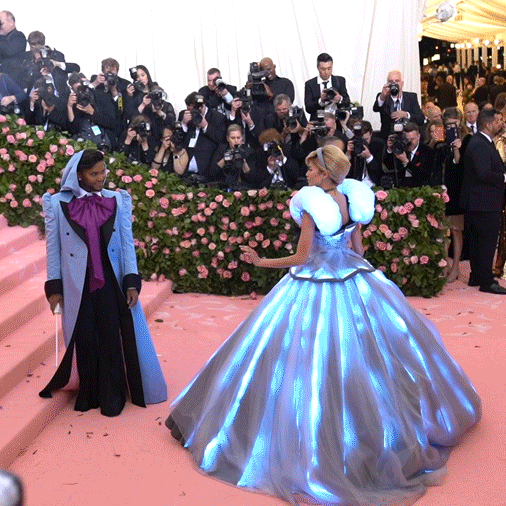 AND OF COURSE, WHO COULD FORGET THIS ICONIC MOMENT BETWEEN THEM??  A 🍕 OF HISTORYWho Harriet Tubman Really WasIt's Women's History Month. And every week, a Meteor collective member recounts a piece of women's history that resonates with them. Today, Treasure Brooks tells us how magical retellings of Tubman's legacy leave out crucial details about the end of her life.  HARRIET TUBMAN, CIRCA 1913 (PHOTO BY ANN RONAN PICTURES/PRINT COLLECTOR/GETTY IMAGES) Harriet Tubman is most known for leading enslaved people to freedom as a conductor of the Underground Railroad. Like most historical figures, her reputation has been recolored by a slew of revisions: the pistol she famously carried south often rewritten as a shotgun, and her already unfathomable 70 rescued railroad passengers sometimes mischaracterized as being in the thousands. What’s lost in quasi-mythological retellings of Tubman’s life is that the very human, God-fearing woman did what all people do: grow older. At 74 years old, Harriet purchased a 25-acre parcel of land in Auburn, New York to open what would become the “Harriet Tubman Home for Aged & Indigent Negroes.” Historians say the home was her final dream as she had spent the decades prior caring for her elderly parents and impoverished Black people. Unfortunately, she alone was not able to raise the funds to complete development on the project, in part because her appeals for compensation for her service in the Civil War had been repeatedly rejected by Congress. Insistent on seeing the elderly home realized, Tubman deeded the New York property to the African Methodist Episcopal Zion Church. The church opened and ran the facility from 1908 until it was closed in the early 1920s, with Tubman herself being admitted as a patient until her death in 1913. The creation of the home was meant to address the neglect of elderly Blacks, whose old age made them all the more vulnerable to systemic racism. But the property fell into “severe disrepair” following her death, characteristic of a country that has historically deprioritized social protections for senior citizens. This and the home’s posthumous omission from her legacy present a severe indictment of our treatment of the elderly. Having triumphed over the horrors of slavery, it was ageism Tubman wrestled in her final years. While “Black girl magic” has emerged in the last decade as an endearing, celebratory phrase, the notion that Black women’s accomplishments are innately otherworldly sits dangerously close to the societal prejudice that we, ourselves, are not human. Too often the larger-than-life narratives tied to our early successes eclipse our right to care and recognition in old age. Without a fountain of youth at our aid, the only magic allotted to many Black women is the ability to disappear. We uplift the entirety of Harriet Tubman’s legacy—from escaping slavery at 27 years old to her death at 93—because what our heroes deserve even more than not being forgotten is being remembered as fully and lovingly as they lived. Treasure Brooks is a strategist, cultural critic and interdisciplinary artist. She graduated from Harvard University in 2022 with a Bachelor's degree in Art, Film and Visual studies. Her work includes multimedia art, social theory and political organizing.  FOLLOW THE METEOR Thank you for reading The Meteor! Got this from a friend? Sign up for your own copy, sent Tuesdays and Thursdays.
|
![]()
Diversity is not a "distraction"
|
Hello again, Meteor readers, How’ve things been since last we spoke? Has all been quiet on your western front? Or have you been caught in a triangle of sadness? Hopefully the weekend wasn’t too much trouble for you. But if it was, I’m sure you’ll find the way (of water) forward. Oh, by the way: The Oscars happened.  In today’s newsletter, we look at the Silicon Valley Bank collapse and how, according to one op-ed author, it’s all women’s fault. Plus, an original film with a relatively low budget takes home every award everywhere all at once. But first: let’s start the news. Still trying to find a pun for “The Banshees of Inisherin,” Bailey Wayne Hundl  WHAT'S GOING ONDistracted by diversity??: The Silicon Valley Bank (SVB) collapsed on Friday, making it the second-largest bank failure in US history behind Washington Mutual in 2008. The bank announced Wednesday they had sold securities at a $1.8 billion loss, triggering a market panic that dropped SVB’s value by over $160 billion in 24 hours. By Friday morning, regulators had shut the bank down and placed it in receivership under the FDIC. As one of the many companies that had funds at SVB, we have a lot of questions. But you know what we’re not asking? “Hey SVB—why did you hire so many women?!” The author of a Wall Street Journal op-ed published Sunday posited the idea that, since the bank’s board consisted of 45% women—as well as “1 Black” and “1 LGBTQ+” (wow, all five identities in one person??)—the bank might have fallen because its leadership was “distracted by diversity demands.” Um, what? First of all, a board of directors that’s 91% white and 91% straight does not seem to be “distracted” by anything but conducting business as usual. And second: The idea that diversity is distracting isn’t just offensive; it’s also incorrect. In fact, diversity has proven to be better for a company’s bottom line, better for retention, better for diversity programs themselves (and their implementation). So maybe let’s not try to blame every failure on the involvement of anyone who’s not a cishet white man. AND:
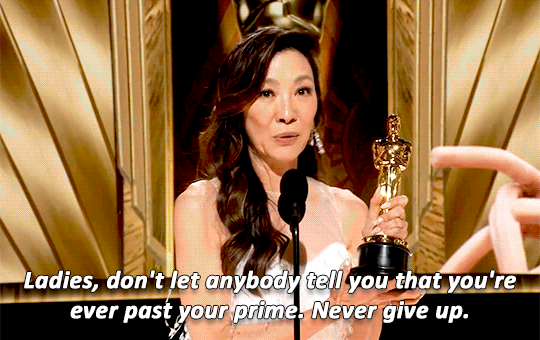
 A 🍕 OF HISTORYWomen Are Powerful and Dangerous—and Don't You Forget ItIt’s Women’s History Month. And every week, a Meteor collective member recounts a piece of women’s history that resonates with them. Today's slice: Audre Lorde.  PHOTO BY ROBERT ALEXANDER/ARCHIVE PHOTOS/GETTY IMAGES This famous picture of writer Audre Lorde was taken in 1983 while she was lecturing students as an artist-in-residence at the Atlantic Center for the Arts in Florida. That same year, she spoke at the 20th anniversary of the March on Washington. It was a historic moment: Some organizers worried that because she was a lesbian, her inclusion would ruffle too many feathers. But she spoke anyway and famously said, “We know that when we join hands across the table of our difference, our diversity gives us great power. When we can arm ourselves with the strength and vision from all of our diverse communities, then we will in truth all be free at last.” – Samhita Mukhopadhyay  FOLLOW THE METEOR Thank you for reading The Meteor! Got this from a friend? Sign up for your own copy, sent Tuesdays and Thursdays.
|
![]()
The killing of an abortion doctor
|
Good evening, beautiful people, As you may know, yesterday was International Women’s Day. Tons of companies in the UK happily tweeted out their surface-level support—until this Twitter account retweeted those companies with data about their own gender pay gaps. Turns out posting a picture of a few women smiling is not enough to erase inequity! 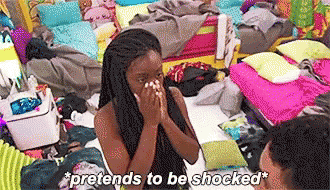 In today’s newsletter, our slice of women’s history is more like an entire pie. Writer Stassa Edwards examines the history of anti-abortion violence in Pensacola, Florida—a city that marks a dark anniversary tomorrow. But first: the news. Grab your reading glasses 🥸, Bailey Wayne Hundl  WHAT'S GOING ONFinally, some good news!: Yesterday, Minnesota Gov. Tim Walz (D) signed an executive order protecting access to gender-affirming healthcare. Not only does this order direct all state agencies to protect anyone seeking this care “to the fullest extent of their lawful authority,” but it also instructs them not to comply with investigations in the growing number of states where gender-affirming surgeries or treatments are banned or limited. In effect, this order turns Minnesota into a refuge state for anyone who wants to medically transition, even if their home state has restricted their access. With South Dakota having just banned gender care for minors (and Iowa well on its way), the timing for this order could not be better. AND:
 A 🍕 OF HISTORYIt All Started in PensacolaHow the 1993 murder of Dr. David Gunn set off 30 years of violence toward abortion providers BY STASSA EDWARDS  PETER AND MAYE GUNN, PARENTS OF MURDERED OBSTETRICIAN DR. DAVID GUNN, LAY FLOWERS ON THEIR SON'S CASKET. (PHOTO BY THOMAS S. ENGLAND VIA GETTY IMAGES) On March 10, 1993, 31-year-old Michael Griffin, a fundamentalist with a “bad temper,” pulled out a shotgun, yelled, “Don’t kill any more babies,” and shot Dr. David Gunn three times in the back, killing him. Dr. Gunn had been walking into the offices of the Pensacola Women’s Medical Services Clinic, one of the two abortion clinics in Pensacola, Florida, where he provided care. He died on the lawn of the clinic. According to one witness, the anti-abortion protesters who surrounded the clinic nearly every day looked on “like they were just happy.” Dr. Gunn’s murder was the first of an abortion doctor in modern times—and the opening salvo of a campaign of intensifying violence against abortion providers during the 1990s. Dr. Gunn had been a true believer in reproductive freedom, undeterred by the threats of violence he faced. Just weeks before he died, on the 20th anniversary of Roe v. Wade, he stepped outside the clinic and sang “Happy Birthday” to the protesters outside. But Griffin believed he was acting under the guidance of God, and his action set a decades-long chain of events in motion. As we approach the 30th anniversary of Dr. Gunn’s death—as reproductive care becomes increasingly harder to access and abortion providers continue to face alarming rates of violence—it is worth remembering what happened in Pensacola.  ANTI-ABORTION PROTESTORS PICKET THE 1985 TRIAL OF MATTHEW GOLDSBY AND JAMES SIMMONS, WHO BOMBED THREE PENSACOLA ABORTION CLINICS. (PHOTO BY BETTMANN/GETTY IMAGES) TWO MEN AND A BOMB It was an accident of geography and a quirk of politics that made Pensacola a focal point for abortion violence: The Panhandle was accessible to abortion seekers in the deep South, and following Roe, Florida’s abortion laws were more permissive than those of the states that surrounded it. Women traveled to Pensacola from Mississippi, Alabama, and Georgia to receive care. As patients came, so did protesters—and eventually violence came with them. It started peacefully, in the 1980s : prayer vigils and protest signs. Then it escalated to yelling at women, threatening clinic staff, and rushing clinics. When that wasn’t enough, they turned to bombs and guns. Before Dr. Gunn was murdered and before hardline activists descended on Pensacola, there were James Simmons and Matthew Goldsby, both 26-year-old fundamentalists who felt moved by God to bomb the other clinic in the area, the Ladies Center, in June 1984. The effort wasn’t as successful as they’d hoped; the explosion left the clinic extensively damaged, but didn’t close it for good. But Simmons and Goldsby weren’t done. Emboldened, they planned more bombings for early Christmas morning, 1984, as “a gift to Jesus.” Three explosives detonated in Pensacola, at the offices of two abortion providers and, yet again, the Ladies Center. No one was hurt. Simmons and Goldsby were eventually arrested. Before a judge put a gag order on him, their defense attorney spun a story to the press of two heroes, “knights in shining armor,” rescuing babies. They were eventually convicted and sentenced to 10 years in prison, but the bombings had done irrevocable damage. Though the Ladies Center eventually reopened, the two doctors targeted in the bombing packed up and left town. Though some anti-choice groups denounced the bombings, others saw them as righteous interventions. Then-President Ronald Reagan had little to say, although he eventually made a statement condemning “violent, anarchist activities” after a rash of bombings followed Pensacola. And Simmons and Goldsby had drastically altered the landscape of abortion, opening up the possibility of actual violence, not just harassment, against staff and abortion seekers. John Burt, a former Ku Klux Klan member with ties to the terrorist organization the Army of God, latched on to the bombers’ trial, eager to defend their extremist actions. Then, shortly after the Ladies Center reopened, Burt dedicated himself to protesting outside the clinic. He was so committed that he bought the piece of land next to the clinic. There, protesters could yell at women and intimidate staff without fear of arrest; after all, they weren’t trespassing. Michael Griffin, who went on to shoot Dr. Gunn, was one of Burt’s followers, and took his gospel of violence to heart (his lawyer later argued that Burt had brainwashed him into the crime), Yet Burt remained free well after Dr. Gunn’s murder to preach the gospel of violence. His decades-long campaign only ended in 2003, after he was sentenced to prison for molesting a teen at his Christian home for unwed mothers. In Pensacola and beyond, Griffin’s murder of Dr. Gunn galvanized the anti-abortion community even more than the 1984 bombings had done. Shelley Shannon, an Army of God associate who attempted to murder Dr. George Tiller in Wichita in 1993, called Griffin “the awesomest greatest hero of our time.” Griffin’s supporters didn’t care that Dr. Gunn was “known as a dedicated father and doctor,” as the Tampa Bay Times described him. To them, his death was a victory, and they were determined that it wouldn’t be the last. You can read the rest of this story here. Stassa Edwards is a writer and editor. Her bylines have appeared in Jezebel, Slate, Self, Aeon, and Lapham’s Quarterly.  FOLLOW THE METEOR Thank you for reading The Meteor! Got this from a friend? Sign up for your own copy, sent Tuesdays and Thursdays.
|
![]()
A drag queen on the drag bans
|
Howdy, Meteor readers, We’ve got a big one today, so let’s get right to it. In today’s newsletter, we hear about Tennessee’s new drag ban from one of America’s favorite drag queens: me. And for today’s slice of women’s history, Meteor founding member and disability rights activist Emily Ladau reflects on the legacy of the great Judith Heumann—who passed away Saturday. But first: the news. Hope you're ready for it, Bailey Wayne Hundl  WHAT'S GOING ONSuing the Lone Star State: Yesterday, five Texan women who were denied abortions for life-threatening pregnancies sued the state over its abortion ban. Though the authors of the ban say it allows exceptions in cases of risk of substantial harm to the mother, doctors across the state say it has been tying their hands—and putting patients’ lives at risk. Amanda Zurawski, one of the plaintiffs, developed sepsis when forced to carry an unviable pregnancy before doctors were willing to operate. The resulting scar tissue has left one of her fallopian tubes permanently closed. Today, these women told their stories on the steps of the Texas Capitol. “I may have been one of the first who was affected by the overturning of Roe in Texas,” said Zurawski, “but I’m certainly not the last. More people have been and will continue to be harmed until we do something about it.” Lauren Miller, another plaintiff, shared how she was not allowed to terminate the pregnancy of one twin to save the life of the other, asking, “How is it that I can get an abortion for a dog but not for me?” These women are incredibly brave, and we hope that bravery can help to make change for, as Zurawksi phrased it, “all Texans who, like me, are scared and outraged at the thought of being pregnant in this state.” You can learn more about Zurawski’s story here. AND:
 RECALLING A TOO-FAMILIAR HISTORYThe Attack on Drag, as Told by a Drag QueenBY BAILEY WAYNE HUNDL  DYNA WITH A D, AKA METEOR WRITER BAILEY WAYNE HUNDL, AKA ME (PHOTO BY FREDDIE COLLIER) On Thursday, Gov. Bill Lee (R-Tenn.) signed a bill making Tennessee the first state to officially ban public drag performances. The new law, which goes into effect July 1, prohibits a wide variety of “adult cabaret performance”—including “male and female impersonators”—from public property or any venue where a child could see a performer. And it probably won’t be the last of its kind; similar “drag bans” have popped up in 12 other states. I’ve been a drag performer for over five years now. I’ve met friends through drag shows; I’ve mourned friends through drag shows. Before I was fully aware I was trans, I entered amateur drag competitions as a safe way to play with my gender. The first place I ever tried out the name Bailey, just to see how it felt, was in the crowd of one of my favorite shows. For so many people in so many ways, the art of drag and the community surrounding it has acted as a source of freedom and solace from an otherwise oppressive reality. Hell, if I’d been exposed to drag sooner, maybe I wouldn’t have waited ‘til I was almost 30 to start hormone replacement therapy—a fact that I’m certain these anti-drag legislators have at the forefront of their minds. Laws prohibiting gender variance are unfortunately nothing new; in fact, they’ve been around for nearly 150 years. The Stonewall riots (aka the very first Pride) started in reaction to police arresting anyone who wore less than three items of their assigned gender—a policy based on an 1845 law intended to stop farmers from evading taxes. And the abuse these laws enable is well-documented. Targeting “male and female impersonators on public property” puts trans and gender-nonconforming people at risk of police harassment. It puts performers who’ve used drag as their sole source of income (who now have a huge “gap” in their resume) at risk of unemployment. It puts bar and restaurant owners who rely on drag shows to bring in business at risk of closing. “A lot of these performers…they’ve been around my kids since they were born, they’ve known them their whole life,” said Tennessee cocktail bar owner Nick Scott. “We consider them family.” The stated purpose of these drag bans is to protect children. (Apparently these legislators haven’t heard of school shootings.) But honestly? Children love drag. I’ve performed at several kid-friendly events over the years. I’ve had kids come up and dance with me—completely unprompted—while I’m lip-syncing Disney; I’ve watched their parents say, “It’s okay, honey” as they nervously approach me for a picture; I’ve handed them noisemakers to “be my backup band” while I perform; I’ve read them storybooks in the park. As “RuPaul’s Drag Race UK” alum Cheddar Gorgeous has said, “Drag can be made age appropriate in the same way comedy, movies, books, plays or any other art form can be made for and enjoyed by kids!” Everyone knows how much kids love shiny, sparkly, colorful things. And you know what? So do we. The right’s attempt to eradicate gender nonconformity is nothing new. But time and time again, the queer community has proven its resilience. So rest assured: We are not even a little bit close to giving up.  A 🍕 OF HISTORYOn Judith Heumann, the “mother of the disability rights movement”The activist passed away this weekend at 75. Her mentee, friend, and partner in the movement Emily Ladau reflects on her incredible legacy. When I was younger, as I was developing my own sense of disability identity, I read about Judy Heumann. To so many, she is known as the mother of the disability rights movement. And as I got more involved in the world of activism, I had the privilege of getting to know her personally. Judy had no children of her own, but she made people feel like family. So often, she took younger disabled people under her wing, mentoring, guiding, and connecting us with resources. From my first meeting with her, I knew she was going to illuminate my own pathway. Judy fought for so much, from her right to become a teacher in New York City in the 1970s to the signing of the Section 504 regulations of the Rehabilitation Act of 1973. She was among the leaders of the longest nonviolent sit-in at a federal building to get them signed. This was a precursor to the Americans with Disabilities Act; without these efforts, the collective work of the disability rights movement wouldn't have moved forward. Advocacy was at the core of Judy's being, from her time serving in the State Department to fostering relations with the global disability community. She was constantly in action: doing speaking engagements, co-writing her memoir, creating a children's book, hosting a podcast. I often wondered how she took time for herself, but I also really admired how she always gave so selflessly to others. Judy was also quite the Jewish bubbe type and would regularly ask if I was engaged yet. Though I always had to tell her no, I appreciated that she cared. What I love the most about Judy is that she truly was deeply human (and not just because of her last name). And she was full of fire over the fact that people saw disability as a tragedy, rather than seeing the inaccessible world around us as the real tragedy. I am lucky that I grew up in a time after so much of the groundwork had been laid for a more just, inclusive world—so much of it because of Judy's tireless activism and indomitable will. And alongside the rest of the disability community, I am ready to continue to carry the torch.  FOLLOW THE METEOR Thank you for reading The Meteor! Got this from a friend? Sign up for your own copy, sent Tuesdays and Thursdays.
|
![]()
"You can't just cherry-pick history"
|
Looking cute today, Meteor readers! Do we have anyone from Italy with us today? Apparently, some Italian Starbucks stores have started offering a new coffee drink with a twist ingredient: olive oil. If you’ve tried it, please tell me whether it’s a horror or a revelation. My inbox is open.  In the meantime, how ’bout I treat you to some news? It’s officially Women’s History Month, and we’ve decided to celebrate by including a little slice of history every week. Today, Rebecca Carroll writes about Toni Morrison’s Beloved—and the real woman the novel was based on. And we’ll also learn about Hippocrates, the right’s latest darling, who, according to Renee Bracey Sherman, may have been more enlightened than they claim. But first: the news. Bailey Wayne Hundl  WHAT'S GOING ONThe growing child labor scandal: The Biden administration announced a Department of Labor (DOL) investigation into major American companies’ use of child labor, following the release of a major New York Times investigation into dangerous factory jobs being performed by migrant children. Even before its most recent announcement, the DOL had seen the number of child labor law violations increase by almost 70% since 2018. The Department of Homeland Security (DHS) then expanded the DOL’s previous investigation into migrant children—some as young as 13—found cleaning blood and animal parts off the floors of slaughterhouses. You would think these headlines might lead to greater vigilance nationwide surrounding child labor laws. But just yesterday, the Arkansas House’s Public Health, Welfare, and Labor Committee passed H.B. 1410, which would eliminate the need for 14- and 15-year-olds to obtain and submit to employers a certificate showing they are entitled to work legally. Bill sponsor Sen. Rebecca Burkes (R) said that the current form creates an unnecessary hurdle in the hiring process. But, as Laura Kellan of Arkansas Advocates for Children and Families pointed out, employment certificates only inconvenience companies who are illegally hiring minors. “We’re worried about the children who are at risk of being exploited and who are being exploited today,” Kellan said. AND:
 CHERRY-PICKING HISTORYThe Anti-Abortion Movement's Man-Crush on Hippocrates"I'm calling bullshit," says Renee Bracey Sherman  PEOPLE RALLY IN FRONT OF THE U.S. SUPREME COURT DURING THE 50TH ANNUAL MARCH FOR LIFE RALLY IN WASHINGTON, DC. (PHOTO BY CHIP SOMODEVILLA/GETTY IMAGES) The Alliance for Hippocratic Medicine, named for ancient Greek physician Hippocrates of “do no harm” fame, sounds like a benevolent organization. But the AHM is actually a virulently anti-abortion group, backed by lawyers who have passed many of the last decade’s strictest anti-trans laws—and they are currently fighting in an Amarillo, Texas courtroom to have mifepristone banned from its current use as an abortion pill. But in addition to all the other ways in which they are wrong, writer, activist, and We Testify founder Renee Bracey Sherman says they’ve got Hippocrates wrong too. OK, so what’s the myth about Hippocrates, and what’s the truth? So there's a line in the Hippocratic oath that basically says, "I will not give a woman an abortion pessary,” which was a suppository. Anti-abortion advocates have used this to claim that doctors should not provide abortions because it goes against the Hippocratic oath to do no harm. However, Hippocrates didn’t even write the oath himself! And [my co-author Regina Mahone and I] found research showing that Hippocrates actually gave out many recipes about how to do an abortion, both as a suppository and as a tea (or a “potion,” as they were called). John M. Riddle's book Eve's Herbs argues that the Greek phrase meaning “abortive pessary” was changed later to mean all abortions rather than just one method. In other words, Hippocrates' writings have been mistranslated, misunderstood, misappropriated, and downright mangled. And why does it matter? Because the anti-abortion movement cannot just cherry-pick which parts of history they want to keep and which ones they don't. They want to hold on to someone like Hippocrates, because they believe in ancient Greek and Roman medicine, and because they revere ancient white society. And they want to say that the original physician—for whatever that’s worth—said, “No abortions!” But that’s simply not true. [Meanwhile], they want to throw out Black and brown communities that have been teaching abortion for thousands of years. This is not the first time that they've done this. They do this with Dr. Martin Luther King and other black civil rights revolutionaries—they say that they're anti-abortion, but the evidence is to the contrary. MLK accepted an award from Planned Parenthood and literally wrote a note thanking them for it, saying, “This will be among my most cherished possessions.” Coretta Scott King went to the event to accept the award on his behalf. They're rewriting history. It ties deeply into this moment where [conservatives] are trying to ban books in school and Black history lessons. They are trying to get rid of our history, because if we don't know our history, we can't sit here and say: That is simply not true. I'm calling bullshit. And abortion has always been our right historically. This entire lawsuit is built on misinformation and a misreading of the historical facts. And it starts with the name of the organization. It’s all a hill of lies.  A 🍕 OF HISTORYThe History of Toni Morrison's Beloved and the Real Woman Who Inspired ItIt’s Women’s History Month. And every week, a Meteor collective member recounts a piece of women’s history that resonates with them. First up: Rebecca Carroll.  NOBLE, THOMAS SATTERWHITE. THE MODERN MEDEA. 1867. PHOTOGRAPH. When I discovered the work of Toni Morrison in college, it felt like the sky had cracked open and released a magnificent Black language and legacy for which I’d been waiting a lifetime. All of the characters and stories in Morrison’s books are stubbornly elegant in their own way, achingly intimate, and resolutely real. But it’s stunning to know now that one of her most chilling stories—Beloved, which is both widely considered to be her magnum opus and has been challenged and even banned by some high schools—is based on a real person: Margaret Garner. Morrison’s 1987 Pulitzer Prize-winning novel tells the story of Sethe, a woman who has escaped the Kentucky plantation on which she was enslaved to live free in Ohio, where we find her after the Civil War. However, Sethe’s home is haunted by a ghost called Beloved—the word inscribed on the tombstone of Sethe’s first, unnamed daughter, whom she killed to protect from a life of enslavement. The first time I read the book—long before I became a mother myself—I remember thinking that her horrific, unthinkable act was a plausible choice for a parent to make. And that was before I understood that the story was based on Margaret Garner, who escaped enslavement in Kentucky with her husband and four young children only to find her family surrounded by slave catchers in Ohio. In that desperate moment, she slit the throat of her two-year-old daughter, started to kill her other children, and planned to kill herself to prevent their return to enslavement. She failed, was prosecuted for “damage to property” and sold to her original owner’s brother. And yet her story—the way that her unimaginable trauma fueled her fierce mother-love—has become part of our collective history. But perhaps more than that, Garner’s story inspired the genius of another Black woman, and together, Garner and Morrison have given all of us an extraordinary narrative that demonstrates the tethered intersection of Blackness and womanness.  FOLLOW THE METEOR Thank you for reading The Meteor! Got this from a friend? Sign up for your own copy, sent Tuesdays and Thursdays.
|
![]()
Student debt is a feminist issue
|
Hope you’re having a good Tuesday, Meteor readers, According to my calendar, we are somehow two whole months into 2023. I guess it’s true: Time flies when you’re having a million different crises at once.  Meanwhile, it’s officially the last day before Black History Month ends (and Women’s History Month starts). To close it out, today’s newsletter contains a list of recommended reading and viewing curated by Ayesha Johnson. It’s a wealth of good options—for every month of the year. But first: the news. Flipping my calendar, Bailey Wayne Hundl  WHAT'S GOING ON STUDENT DEBT BORROWERS CAMPAIGN FOR PRESIDENT BIDEN TO CANCEL STUDENT DEBT (PHOTO BY PAUL MORIGI/GETTY IMAGES) “Student debt cancellation is legal”: Today, the Supreme Court begins to hear arguments in two cases challenging President Joe Biden’s student loan forgiveness program—the first: a lawsuit from six Republican-led states arguing the plan hurts loan providers; the second: a case put forward by two individual borrowers who did not qualify for full debt relief forgiveness, claiming the law is unfair. The central question behind this case: Does the Department of Education have the authority to forgive loans? A little background: The Department of Education first paused payments at the beginning of the COVID-19 pandemic and extended this pause as the pandemic continued. When the payments were set to start back up in 2022, the Biden administration decided to offer up to $20,000 of relief to lower-income borrowers. Solicitor General Elizabeth Prelogar cited the 2003 HEROES Act, which provides the Secretary of Education the right to help borrowers in a national emergency—which the COVID-19 pandemic certainly was. But the opposition claims this was an over-extension of executive powers that shouldn’t have been able to pass without Congress. The payment pause, which has been extended in light of this litigation, will last until 60 days after this case is resolved. But Biden’s policy, which would wipe out $400 billion in student debt, would be crucial for so many Americans who are facing rising costs of education but stagnant salary growth. And lest we need to say it again: Student debt is a feminist issue. Women hold nearly ⅔ of all student debt in the United States, with Black and Native women disproportionately affected. As Bernie Sanders said today outside the deliberations, “You should not have to face financial ruin because you want a damn education!” Abortion is for everyone: Jessa Duggar Seewald—of the Duggars, the infamous family of forced-childbirth advocates—posted a video on Friday recounting the story of her life-saving abortion. Of course, she didn’t call it that; she described it as a miscarriage, and the procedure used to remove the fetus—a dilation and curettage (D&C)—as a medical procedure. But D&Cs are used to remove uterine tissue in the case of non-viable, dangerous, or unwanted pregnancies—a process that does, in fact, constitute an abortion. Duggar Seewald was lucky to be able to access one; there are many documented instances of people who required the same procedure but were denied it due to their states’ abortion bans. To be clear: It’s a good thing that Duggar Seewald wasn’t forced to carry a nonviable pregnancy to term. But her family has been very vocally anti-abortion—and she herself has compared abortion to the Holocaust. This story is another reminder that any pregnant person, for any reason, may one day need an abortion—regardless of how much of a boogeyman they’ve made it out to be. AND:
  MY BLACK HISTORY MONTH LIST The Meteor’s Ayesha Johnson shares some of the TV shows, movies, and books that are, for her, an essential way to understand Black history. TV Shows/Movies
Books
 FOLLOW THE METEOR Thank you for reading The Meteor! Got this from a friend? Sign up for your own copy, sent Tuesdays and Thursdays. Ideas? Feedback? Requests? Tell us what you think at [email protected]
|
![]()
A Ukrainian reflects on her year of war
|
Hidey-ho, Meteor readers, It’s been four full days since the BAFTAs and I still can’t stop singing, “AN-GE-LA BA-SSETT did the thing.” Ariana DeBose should host every awards show from now until forever. If she auctioned that pink jumpsuit, I would buy it for millions (that, to be clear, I do not have).  In today’s newsletter, on the eve of the one-year anniversary of Russia’s invasion of Ukraine, my colleague Anya Kurkina shares her reflections as a Ukrainian in America. Plus, rapists get what’s been coming to them (or at least some of it). But first: the news. Doing the thing, Bailey Wayne Hundl  WHAT'S GOING ONWhat will it take to believe women?: Today in Los Angeles, Harvey Weinstein was sentenced to 16 additional years in prison. Back in December 2022, the jury had convicted Weinstein of three counts of rape and sexual assault against an anonymous victim. (The trial also addressed the claims of three other victims—including First Lady of California Jennifer Siebel Newsom—but the jurors were unable to produce a conviction.) This sentence comes in addition to the 23 years Weinstein received from his 2020 trial, where he was found guilty of one count of rape and one count of sexual assault against two women. Before we celebrate, it’s worth remembering what Siebel Newsom has called out as the misogyny on display in this trial. At one point, one of Weinstein’s lawyers accused her of being “another bimbo who slept with Harvey Weinstein to get ahead in Hollywood.” And it’s absolutely appalling that despite the bravery of over 100 women who dared to publicly disclose their trauma, Weinstein has been convicted of so little. Between two trials, he’s only been convicted of crimes against three of his victims—meaning there are still more than 90 women whose publicly shared stories have had no legal bearing. In a statement released Monday, Siebel Newsom applauded the bravery of all the victims, saying: “We must keep fighting to ensure that survivors are supported and that their voices are heard.” AND:

 ONE YEAR AFTER THE INVASION OF UKRAINE“Since That Day, Nothing Has Been the Same” The Meteor's Anya Kurkina reflects on the distress in her homeland.  THE UKRAINIAN FLAG FLIES OVER A DESTROYED BUILDING (IMAGE BY JARAMA VIA GETTY IMAGES) Tomorrow marks the one-year anniversary of Russian president Vladimir Putin’s invasion of Ukraine. One year of bombing, of refugees, and—as in so many other conflicts—of lives interrupted. (According to the UN, at least 8,000 civilians have died and 13,000 have been injured.) For The Meteor’s Anya Kurkina, who grew up in Ukraine and whose parents still live there, this story is personal. She shares a bit of it here. The Meteor: Thinking back to a year ago, February 24, 2022: What was that day like for you? Anya Kurkina: Like every single Ukrainian, I remember that day really well. The entire week before was spent in speculation: Will he or won’t he [invade]? People were divided into these camps, and I was on the side of “he won’t.” I still believed, for some reason, that he had some fear, that he was a smart politician. But I think what happened is that he figured it would be a blitzkrieg for him—an easy win. So I was sitting there perfectly comfortable…and at about 2 or 3 AM, I get a call from my mom [in Kiev], and she’s in tears, and she just whispered to me: “It has started.” My dad had seen a rocket flare go by their window. And since that day, nothing has been the same—not for any Ukrainian there, or for any refugees. TM: How are you feeling on this anniversary? AK: The morning starts the same way for every single person from Ukraine right now: Wake up, look at Telegram (which is the equivalent of Messenger but protected), go through the WhatsApp groups to see the updates, and then you call your mom. And sometimes it’s rants about “the world is doomed,” and sometimes it’s, “I’m making tea, can you tell me how to cut a lemon?” On this day in particular, we're a little bit anxious because we don't know what this maniac is going to do. There's a big fear that he will escalate to…a different degree than ever seen before…All we have, unfortunately, is hope. [President Volodymyr] Zelensky would say we also need weapons alongside hope—that would be great. [Laughs.] But I do have hope. TM: What have been the most hopeful moments this year? AK: Every day is so rough, because there’s no guarantee of anything. You fear for your family, but also every region being hit—this week, Mariupol had to evacuate. For me, the [best part] has been to see how much people care. For one event [through Spilka, the arts collective and relief group Kurkina volunteers with], we raised 6K just by selling tee shirts and bowls of borscht. We can see how many people want to show support; in our volunteer group, we have people from Norway, Italy, Romania. It's great to feel united in this fight. And we were ecstatic that Biden went to Ukraine—and that he chose to come to Kiev as opposed to…a city closer to the border, which would have been much safer. It meant a lot. TM: What do you want Meteor readers to know on this anniversary? AK: You can donate, and you can just keep talking about it. I know it's not a good dinner-table conversation topic, but we're talking about something beautiful, and a way to [build] the world we want to see.  FOLLOW THE METEOR Thank you for reading The Meteor! Got this from a friend? Sign up for your own copy, sent Tuesdays and Thursdays.
|
![]()






